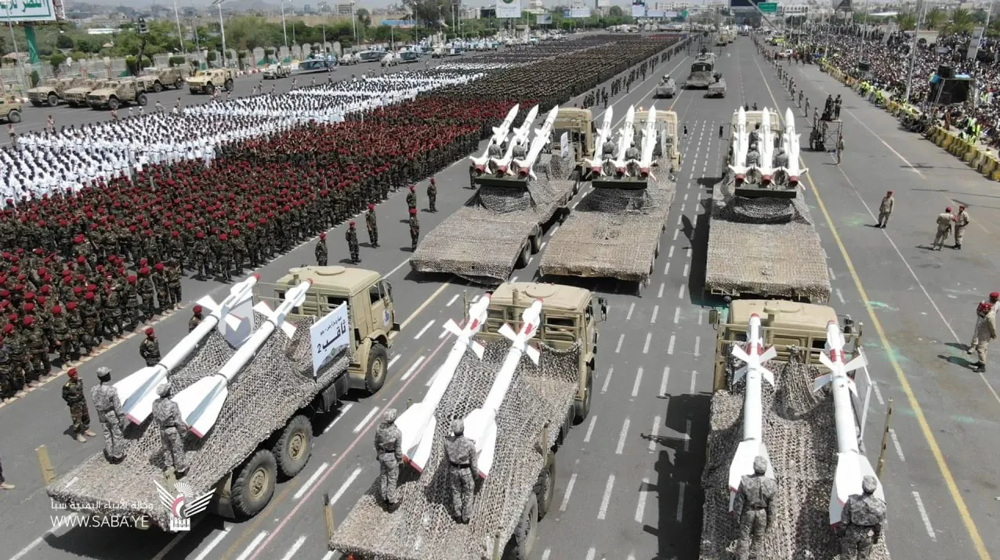5 Emirati troopers killed in attack on UAE base in Yemen’s Abyan: Report
At least five Emirati soldiers have been killed when a military base run by the United Arab Emirates (UAE) came under attack in Yemen’s southern province of Abyan, a report says.
Turkey's official Anadolu news agency, citing an unnamed local source, reported on Friday that the attack was carried out after unknown gunmen started firing at the base with light weapons and RPGs, leaving another Emirati trooper wounded.
The base, located in the vicinity of Abyan city, is run by Emirati servicemen and armed militia loyal to Yemen’s former President Abd Rabbuh Mansur Hadi, the source said, adding that the attack could likely be carried out by militants of the al-Qaeda in the Arabian Peninsula (AQAP) Takfiri terrorist group.
The source also said the gunmen left the scene without leaving any casualties, citing previous similar attacks by the same group against numerous military bases in the region.
In August 2017, local authorities in Abyan announced they purged AQAP militants from the city, but the outfit has conducted a number of attacks and killed scores of troopers and militia ever since.
Leading a coalition of its allies, most prominently the UAE, Saudi Arabia invaded Yemen in March 2015 in an attempt to reinstall Hadi, who had resigned amid popular discontent and fled to the Arab kingdom.
The aggression initially consisted of a bombing campaign but was later coupled with a naval blockade and the deployment of ground forces to Yemen.
Since the onset of the imposed war, the Yemeni army, backed by fighters of the country’s popular Houthi Ansarullah movement, has been defending the impoverished nation against the brutal aggression. The coalition is also resolute to crush the movement as another goal in its war on Yemen, which is teetering on the edge of famine.
More than three and a half years into the war, Saudi Arabia has achieved neither of its objectives. Riyadh had declared at the start of the invasion that the war would take no more than a couple of weeks.
Back in June, the UAE forces, backed by armed militia loyal to Hadi, launched a full-scale offensive against the Houthi-held Hudaydah, which is currently under a tight siege imposed by the invaders. The so-called liberation operation, however, failed to achieve its objective, which is overrunning the vital port and defeating Houthi fighters, backed by those from the Popular Committees.
Over the past several months, humanitarian organizations have warned that military operations against Hudaydah threaten to cut off essential supplies to millions of Yemeni people. More than 70 percent of Yemen's imports pass through Hudaydah’s docks.
The coalition claims Houthis are using Hudaydah for weapons delivery, an allegation rejected by Ansarullah fighters.
The Saudi-led war has also taken a heavy toll on the country’s infrastructure, destroying hospitals, schools, and factories. The UN has already said that a record 22.2 million Yemenis are in dire need of food, including 8.4 million threatened by severe hunger. According to the world body, Yemen is suffering from the most severe famine in more than 100 years.
A number of Western countries, the United States and Britain in particular, are also accused of being complicit in the ongoing aggression as they supply the Riyadh regime with advanced weapons and military equipment as well as logistical and intelligence assistance.

Two-pronged retaliation: Yemen strikes Israeli targets in Yaffa, US destroyers in Red Sea

Collapsing Empire: Yemen shatters the illusion of US air power, yet again

‘Undeterred’ by US aggression, Yemen threatens to expand scope of retaliation: US media
Israeli protesters condemn resumption of Gaza war
VIDEO | Rally held in Damascus for Gaza, Dara'a
VIDEO | Press TV's news headlines
VIDEO | 37th march against NATO, US military bases takes place in Spain’s Rota
VIDEO | Crisis talks in EU as Trump snubs trade negotiations
VIDEO | Palestinians go on general strike in protest at Israeli assaults
VIDEO | Pakistanis urge global action against Israel’s Gaza war crimes
VIDEO | US airstrike on Yemen’s Sana’a kills two women, two children













 This makes it easy to access the Press TV website
This makes it easy to access the Press TV website